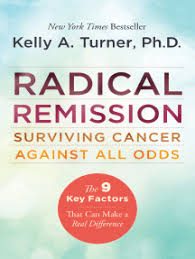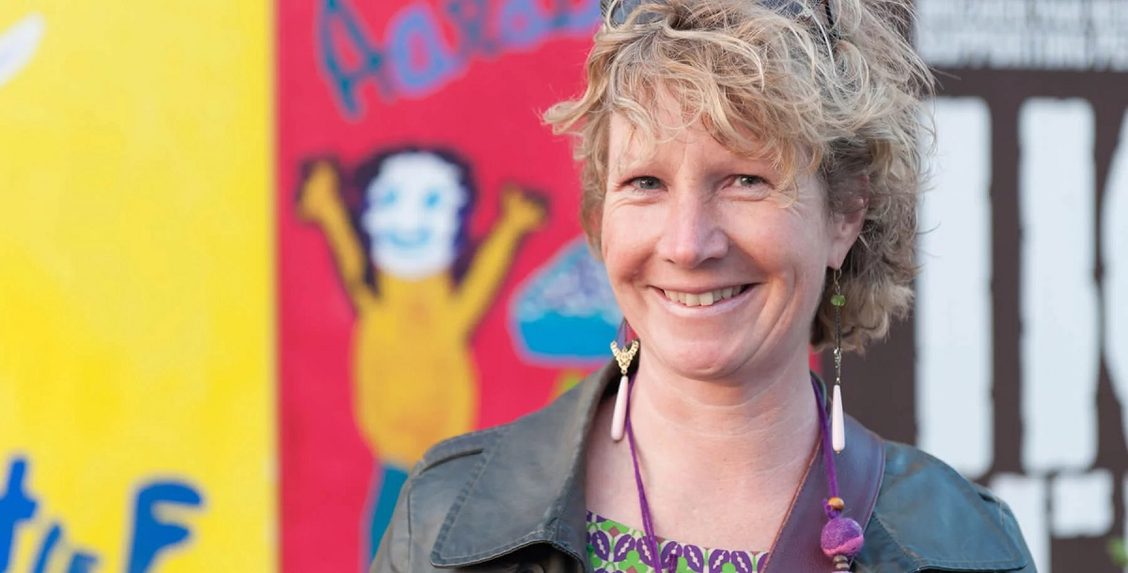 BodyTalk System in Radical Remission Research by Christine Wagner Recently, I had several new clients contact me. They had all heard about BodyTalk from the same book. It is a book that examines a great variety of therapies and methods that have contributed to the remission of severe or life-threatening illness. The book is Radical Remission: Surviving Cancer Against All Odds by researcher and psychotherapist Kelly A. Turner. Not all of my new clients have cancer, but all of them intuitively felt that there are mental and emotional aspects to their healing process that require the unique support that BodyTalk can offer. Turner specializes in integrative oncology. She holds a BA from Harvard Medical School and a PhD from UC Berkeley. Her PhD research focused on over 1,000 cases of radical remission worldwide that defied serious or terminal cancer and where the disease was completely reversed. She investigated the unique therapies and treatments the people underwent and found a common theme: Each person bravely took responsibility for their own healing process and made radical life changes. They quit demanding jobs, reserved time to consciously laugh with their children, started to love their cancer, regularly listened to morning bird song, and the list goes on. In Hawaii, Dr. Turner met Karen “Maya” Sorensen, a local BodyTalk practitioner who shared BodyTalk at an outdoor market. The two spent an afternoon together talking about the BodyTalk System. During her research, other people had mentioned BodyTalk as well. Those who practice BodyTalk or have experienced sessions with a Certified BodyTalk Practitioner know that each body has the innate wisdom to know what it needs to heal. So unsurprisingly, only two of Turner’s nine chapters—each of which reflects the top nine actions people took to survive cancer—cover changes in nutrition and dietary supplements. The other seven address mental, emotional and spiritual changes. The “Following Your Intuition” chapter mentions BodyTalk. Additionally, the chapter called “Releasing Suppressed Emotions” addresses BodyTalk and suggests it as one of the possible “Action Steps.” If you work with cancer clients, this book could open new perspectives for them. It is definitely an ode to the preciousness of life. For more information about the book and personal stories about radical remissions using all types of healing strategies, visit radicalremission.com. For more information on how BodyTalk has both supported and helped to heal those working through a cancer diagnosis, view the BodyTalk testimonials page here or reach out to a Certified BodyTalk Practitioner here. Many of us have worked with clients with cancer and would love to share our own stories. Meet Christine If you could be doing anything in the world at this moment, what would it be? Catching waves at the North Shore of the Spanish island Fuerteventura with my surf-soul-sister. If you had to change your name, what would you change it to and why? I am happy with my name, and having worked in the cultural scene, I am especially happy with my last name—”Wagner” referring to the composer Richard Wagner, and an architect whose Jugend Style work (Jugendstil) I am fond of, Otto Wagner. What is the best piece of advice you were ever given? Remember: We do not have any control! (From many BodyTalk instructors over the years.) Do you have a favorite personal saying or mantra? All is in divine order! (From my mom.) Why BodyTalk, Access or the Life Sciences? BodyTalk has changed my life. A tooth problem 12 years ago was just one “little'“ change. After just one BodyTalk session, the infection was gone. Over the years, my need for perfection, hard work, and the idea of having control over myself, others and life has changed completely. And whenever people leave my BodyTalk Access classes with less or no more back- or shoulder-pain, headaches or tiredness, I am so grateful! BodyTalk makes me happy and many others too! Christine Wagner (originally German) lives near the Dutch North Sea coast. She studied art history and worked in the international culture scene for more than 20 years. Wherever she travelled, she was sharing BodyTalk. She has studied BodyTalk since 2008. Since 2018, Christine has been a full-time CBP. Years ago, her former dentist, who has Parkinson’s, suggested Christine try BodyTalk before undergoing a root canal treatment. Christine still has this particular tooth and has been fascinated by the BodyTalk System ever since. In 2018, she became a BodyTalk Access Trainer and is teaching on- and offline in several languages. She loves swimming and surfing. Christine is also a PaRama Practitioner and in the process of finalizing her AdvCBP training. Visit her Practitioner Website or her English Bio.
0 Comments
Leave a Reply. |


 RSS Feed
RSS Feed